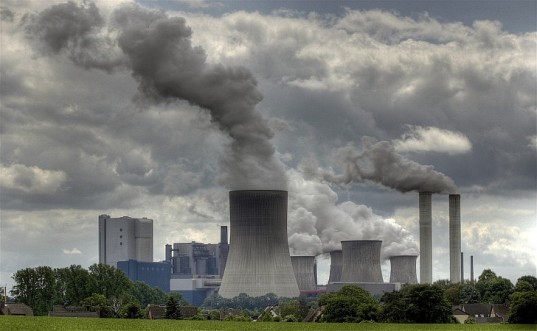
"I look at the attacks on EPA as a war on health … The Environmental Protection Agency is working mightily and against increasing odds to really make important public health decisions that are protective of human health and benefit everyone." - Dr. Alan Lockwood in an interview with Earthjustice.
A few weeks after releasing our report, The Human Cost of Mountaintop Removal Coal Mining, and helping launch the No More Excuses campaign through iLoveMountains.org, I was turned on to a interview about the impacts to human health during various stages of the coal use cycle.
On Earthjustice’s Down to Earth podcast, Jessica Knoblauch spoke with Dr. Alan Lockwood, the co-chair of the Physicians for Social Responsibility’s Environment and Health Committee and the author of the new book, The Silent Epidemic: Coal and the Hidden Threat to Health.
For its short length, the interview does a great job of touching on coal’s impacts, the importance of regulations that protect human health, and why Lockwood feels it is his responsibility as a physician to educate others in the medical community, legislators and the general public about the true cost of coal. Listen to the full interview below, or read the transcript here.
According to Lockwood, pollution from coal is among the top 10 causes of death and disease in the United States. Indeed, the top four causes of death in the nation — heart disease, cancer, diseases of the respiratory system, and stroke — all cite coal-related pollutants as important risk-factors. The risks are disproportionately higher in coal-mining communities, especially those where mountaintop removal takes place.
Lockwood says the lack of knowledge partially inspired the title of his book. In an effort to create evolving awareness, he has met with medical students, public health officials and governments to educate them about the impacts of coal pollutants.
“As physicians, we see in everyday practice the ravages that the coal-generated pollutants wreak on Americans,” Lockwood tells Down to Earth. “I consider it as a part of my professional responsibility as a physician to participate in these kinds of educational activities that are designed to educate my fellow physicians, concerned citizens, legislators and the general public about the realities of the true cost of burning coal in terms of damage to health.”
At one point in the interview, Knoblauch asks Lockwood about the challenge of quantifying environmental health impacts, something that despite the difficulty is “quite possible.” In fact, Lockwood says that is what modern epidemiology has been so critical in doing.
For more than a decade, research has revealed how at every stage of the coal cycle, human health is put at risk and each year more studies reveal that in many ways the problem is getting worse.
The key findings of an October report focusing on the Hunter Valley in Australia further demonstrate how, from the time it is mined, coal threatens every aspect of human health. In the Hunter Valley, where the landscape has been irreversibly altered by open-pit coal mining, there are at least 30 new coal mines and mine expansions planned in the region and a proposed coal export terminal is on the verge of approval without any health impact assessment being undertaken.
At the other end of the coal cycle, its combustion and waste disposal, a recent report by the NAACP studied 378 coal-fired power plants and ranked them in terms of their environmental justice performance. The results are heartbreaking but not very surprising. Across the country, coal power plants have a disproportionately large and destructive effect on the health of low-income people and people of color.
After more than a century of burning coal, we understand the health hazards more than ever, and as more research is completed, we’ll understand them even more. But in the United States and many other parts of the world, coal’s human cost is just beginning to be truly considered.
Discover the human cost of mountaintop removal coal mining in Appalachia in our recent report or with the online tool “The Human Cost of Coal” on iLoveMountains.org.



Leave a Reply